BMW iX1 vs Hyundai i20 – Which model is better for everyday use?
Compare performance, boot capacity, efficiency and price at a glance.
Find out which car is the better choice for you – BMW iX1 or Hyundai i20?
Costs and Efficiency: When it comes to price and running costs, the biggest differences usually appear. This is often where you see which car fits your budget better in the long run.
Hyundai i20 has a significantly advantage in terms of price – it starts at 17400 £, while the BMW iX1 costs 41800 £. That’s a price difference of around 24428 £.
Engine and Performance: Power, torque and acceleration are the classic benchmarks for car enthusiasts – and here, some clear differences start to show.
When it comes to engine power, the BMW iX1 has a decisively edge – offering 313 HP compared to 100 HP. That’s roughly 213 HP more horsepower.
In acceleration from 0 to 100 km/h, the BMW iX1 is decisively quicker – completing the sprint in 5.60 s, while the Hyundai i20 takes 11.10 s. That’s about 5.50 s faster.
In terms of top speed, the Hyundai i20 performs hardly perceptible better – reaching 183 km/h, while the BMW iX1 tops out at 180 km/h. The difference is around 3 km/h.
There’s also a difference in torque: BMW iX1 pulls decisively stronger with 494 Nm compared to 200 Nm. That’s about 294 Nm difference.
Space and Everyday Use: Cabin size, boot volume and payload all play a role in everyday practicality. Here, comfort and flexibility make the difference.
Both vehicles offer seating for 5 people.
In curb weight, Hyundai i20 is decisively lighter – 1088 kg compared to 1940 kg. The difference is around 852 kg.
In terms of boot space, the BMW iX1 offers evident more room – 490 L compared to 352 L. That’s a difference of about 138 L.
In maximum load capacity, the BMW iX1 performs clearly perceptible better – up to 1495 L, which is about 330 L more than the Hyundai i20.
When it comes to payload, BMW iX1 barely noticeable takes the win – 495 kg compared to 472 kg. That’s a difference of about 23 kg.
Who comes out on top?
Overall, the BMW iX1 shows itself to be is largely superior and secures the title of DriveDuel Champion.
It convinces with the more balanced overall package and proves to be the more versatile choice for everyday use.
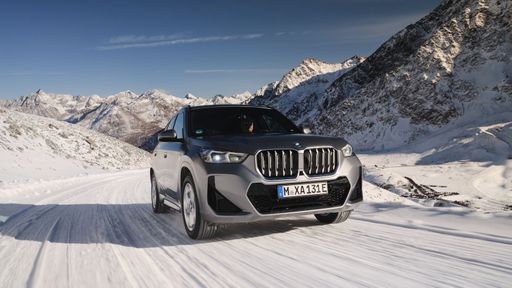
BMW iX1
BMW iX1
The BMW iX1 stands out as a versatile addition to the electric vehicle market, seamlessly combining compact dimensions with advanced electric technology. Its sophisticated design elements and premium interiors ensure a luxurious driving experience, while the vehicle's performance focuses on delivering both efficiency and agility. With enhanced connectivity features and an emphasis on sustainability, this model represents a significant step forward in BMW's commitment to a greener future.
details @ press.bmwgroup.com
@ press.bmwgroup.com
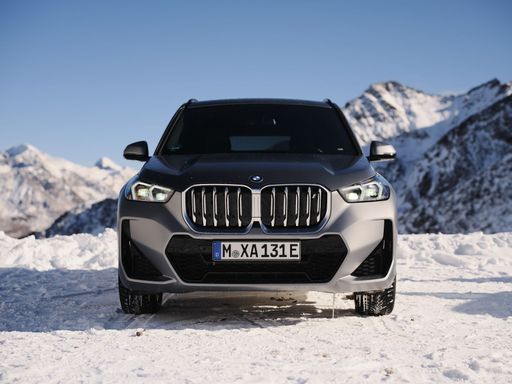 @ press.bmwgroup.com
@ press.bmwgroup.com
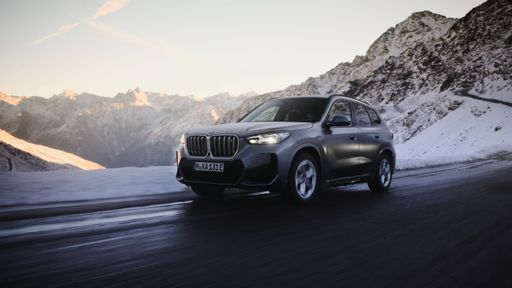 @ press.bmwgroup.com
@ press.bmwgroup.com
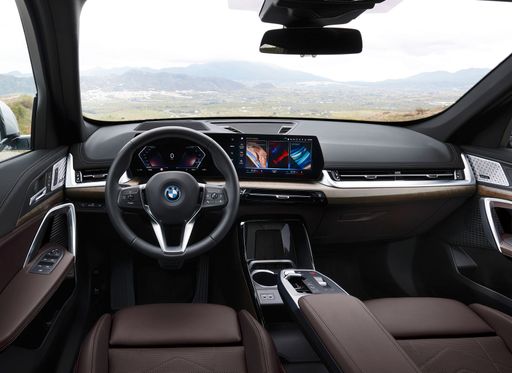 @ press.bmwgroup.com
@ press.bmwgroup.com
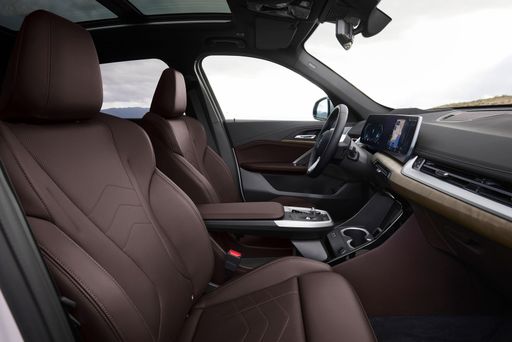 @ press.bmwgroup.com
@ press.bmwgroup.com
Hyundai i20
The Hyundai i20 impresses with its sleek design and modern aesthetics, making it a stylish choice in the compact car segment. Its interior is thoughtfully designed, offering comfort and advanced technology for a pleasurable driving experience. The vehicle also stands out with its efficient performance and agile handling, making city driving a breeze.
details @ hyundai.news
@ hyundai.news
 @ hyundai.news
@ hyundai.news
 @ hyundai.news
@ hyundai.news
 @ hyundai.news
@ hyundai.news
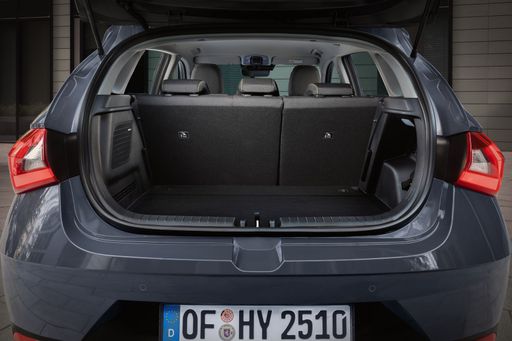 @ hyundai.news
@ hyundai.news

|

|
|
|
|
Costs and Consumption |
|
|---|---|
|
Price
41800 - 54600 £
|
Price
17400 - 24000 £
|
|
Consumption L/100km
-
|
Consumption L/100km
5.2 - 5.3 L
|
|
Consumption kWh/100km
15.8 - 17.1 kWh
|
Consumption kWh/100km
-
|
|
Electric Range
436 - 463 km
|
Electric Range
-
|
|
Battery Capacity
64.80 kWh
|
Battery Capacity
-
|
|
co2
0 g/km
|
co2
119 - 121 g/km
|
|
Fuel tank capacity
-
|
Fuel tank capacity
40 L
|
Dimensions and Body |
|
|---|---|
|
Body Type
SUV
|
Body Type
Hatchback
|
|
Seats
5
|
Seats
5
|
|
Doors
5
|
Doors
5
|
|
Curb weight
1940 - 2085 kg
|
Curb weight
1088 - 1190 kg
|
|
Trunk capacity
490 L
|
Trunk capacity
352 L
|
|
Length
4500 mm
|
Length
4065 - 4075 mm
|
|
Width
1845 mm
|
Width
1775 mm
|
|
Height
1616 mm
|
Height
1450 - 1455 mm
|
|
Max trunk capacity
1495 L
|
Max trunk capacity
1165 L
|
|
Payload
495 kg
|
Payload
450 - 472 kg
|
Engine and Performance |
|
|---|---|
|
Engine Type
Electric
|
Engine Type
Petrol
|
|
Transmission
Automatic
|
Transmission
Automatic, Manuel
|
|
Transmission Detail
Reduction Gearbox
|
Transmission Detail
Dual-Clutch Automatic, Manual Gearbox
|
|
Drive Type
Front-Wheel Drive, All-Wheel Drive
|
Drive Type
Front-Wheel Drive
|
|
Power HP
204 - 313 HP
|
Power HP
79 - 100 HP
|
|
Acceleration 0-100km/h
5.6 - 8.6 s
|
Acceleration 0-100km/h
11.1 - 13.7 s
|
|
Max Speed
170 - 180 km/h
|
Max Speed
166 - 183 km/h
|
|
Torque
250 - 494 Nm
|
Torque
113 - 200 Nm
|
|
Number of Cylinders
-
|
Number of Cylinders
3 - 4
|
|
Power kW
150 - 230 kW
|
Power kW
58 - 74 kW
|
|
Engine capacity
-
|
Engine capacity
998 - 1197 cm3
|
General |
|
|---|---|
|
Model Year
2022 - 2023
|
Model Year
2024
|
|
CO2 Efficiency Class
A
|
CO2 Efficiency Class
D
|
|
Brand
BMW
|
Brand
Hyundai
|
Is the BMW iX1 offered with different drivetrains?
The BMW iX1 is available as Front-Wheel Drive or All-Wheel Drive.
The prices and data displayed are estimates based on German list prices and may vary by country. This information is not legally binding.
